- Your cart is empty
- Continue shopping
Shop
Spiny Tail Iguana
Original price was: $549.99.$499.99Current price is: $499.99.
The Spiny-tailed iguana, also known as the black iguana or black pterosaur, is a medium-sized reptile found in Central America, Mexico, and some parts of South America. These iguanas are known for their unique appearance and interesting behavior, which make them popular pets among reptile enthusiasts.
Spiny-tailed iguanas have distinctive spiny tails that give them their name. They are usually black or dark brown in color, with lighter bands on their tails and legs. Their scales are rough and bumpy, and they have strong, muscular bodies that enable them to climb trees and rocks with ease.
Spiny Tail Iguana: The Spiny-tailed iguana, also known as the black iguana or black pterosaur, is a medium-sized reptile found in Central America, Mexico, and some parts of South America. These iguanas are known for their unique appearance and interesting behavior, which make them popular pets among reptile enthusiasts.
Spiny Tail Iguana have distinctive spiny tails that give them their name. They are usually black or dark brown in color, with lighter bands on their tails and legs. Their scales are rough and bumpy, and they have strong, muscular bodies that enable them to climb trees and rocks with ease.
In the wild, Spiny Tail Iguana are known to be active during the day, spending much of their time basking in the sun or foraging for food. They are social animals and can often be found living in large groups, particularly during the breeding season.
While they can be somewhat aggressive towards other males during mating season, they are generally docile and make great pets with proper care and handling.
Check Out – Baby Jungle Fire Het T+ Albino Boa, Amazon Basin Emerald Tree Boa
Appearance:
Spiny Tail Iguana, also known as the black iguana, is a relatively large lizard with a stocky, robust body and a thick, muscular tail covered with rows of spiny scales. They typically grow up to 3 feet long, with males being slightly larger than females.
Their skin color can vary between different shades of gray and brown, with some individuals having dark stripes or spots. Their skin is rough to the touch and covered in small, pointed scales, giving them a distinctive appearance. Overall, the Spiny-tailed iguana has a formidable and impressive appearance.
Behavior:
Spiny Tail Iguana are generally considered to be more aggressive than other species of iguanas, particularly during the breeding season. However, they can also be quite docile and even friendly towards their human handlers if properly socialized from a young age.
In the wild, these iguanas are known to be solitary creatures, although they may occasionally be seen basking in groups. They are diurnal, meaning they are active during the day, and spend much of their time basking in the sun to regulate their body temperature.
Spiny Tail Iguana are also adept climbers and are known to climb trees and other objects in order to bask or escape from predators. When threatened, they may lash their powerful tails, bite, or use their sharp claws to defend themselves.
Care :
Proper care is essential to keep Spiny Tail Iguanas healthy and happy in captivity. Here are some of the things you’ll need to consider if you’re thinking about adding a Spiny Tail Iguana to your reptile collection:
Spiny Tail Iguana are relatively easy to care for, but it’s important to create a suitable environment that can accommodate their needs. They require ample space to move around and climb, as well as a basking area and a cooler area where they can regulate their body temperature.
The enclosure should be large enough to allow them to engage in natural behaviors such as basking, climbing, and digging. A substrate of sand or other suitable material can be used on the floor of the enclosure, but it should be deep enough to allow for digging.
Check Out – Armadillidium Peraccae Isopods, Magic Potion Isopods
In terms of diet, spiny-tailed iguanas are primarily herbivores, with a diet consisting mainly of leafy greens, vegetables, and fruits. It’s important to provide a varied diet that includes a mix of these foods to ensure that they receive all the necessary nutrients.
They may also enjoy occasional treats such as insects or pinky mice, but these should not be a staple in their diet.
Regular cleaning and maintenance of the enclosure are essential to keep spiny-tailed iguanas healthy and comfortable. The enclosure should be cleaned regularly to remove feces, uneaten food, and other debris. Fresh water should be provided at all times, and the enclosure should be misted regularly to maintain the proper level of humidity.
Overall, with proper care and attention, Spiny Tail Iguana can be rewarding and fascinating pets. It’s important to do your research and ensure that you can provide them with the appropriate environment and diet before bringing one into your home.
Housing: Spiny Tail Iguanas require a large enclosure, as they are active and need room to move around. A 40-gallon tank is the minimum recommended size for one adult iguana. The enclosure should also have plenty of branches, rocks, and other items for climbing and basking.
Temperature and Lighting: Spiny Tail Iguana require a warm, humid environment with access to UVB lighting. The temperature in their enclosure should range from 80-90°F during the day and 70-75°F at night. A basking spot with a temperature of around 95°F should also be provided.
Diet: Spiny Tail Iguanas are omnivores, which means they eat both plants and insects. In captivity, they should be fed a varied diet consisting of leafy greens, fruits, and insects. Calcium and vitamin supplements should also be provided.




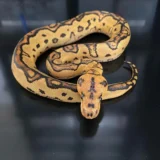
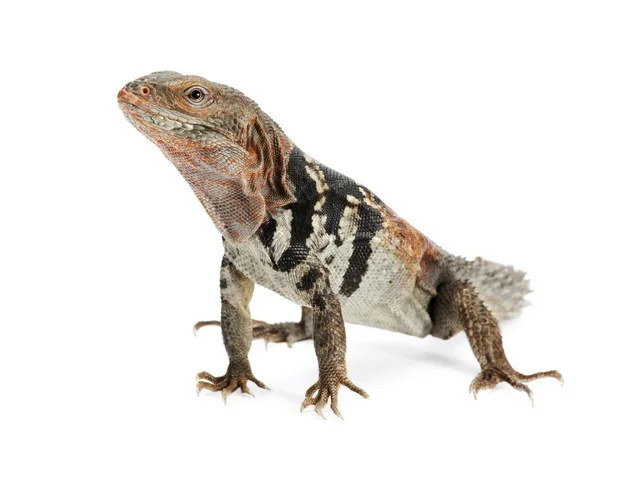

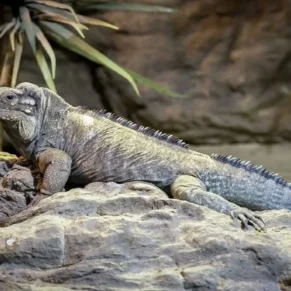

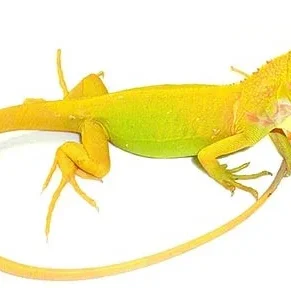
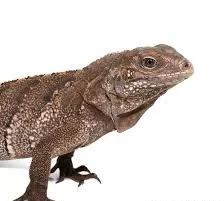
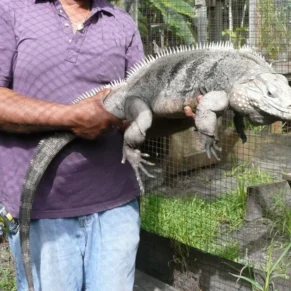

Reviews
There are no reviews yet.